Wage Slavery in the News (2)
By:
October 18, 2011
Please check out the Wage Slave’s Glossary homepage, and help us spread the word about our book!


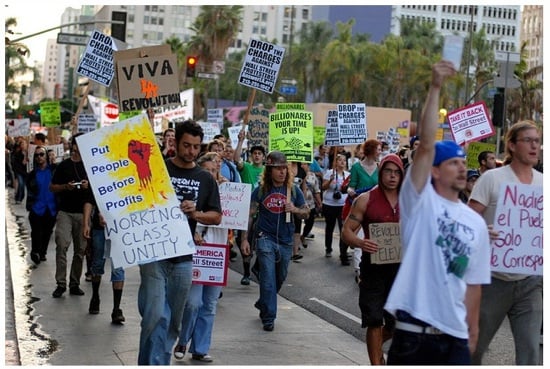
On Oct. 16, reporting on National Action Day from Los Angeles, the Xinhua News Agency (the official press agency of the government of the People’s Republic of China) related the following anecdote:
Kandist Mallett, a girl at her 20s, told Xinhua she joined the protest because she thought the United States needs a change and she wants to do something to push for the change.
She said she has already graduated from college and has got a job, but she does not want to be a “wage slave.”
“I think young people like me should have better chance to contribute to the society and work more productively instead of being a wage slave,” she said. Her remarks represented some young Americans who have a job but are not satisfied with what they are doing.
On Oct. 15, the University of Toronto’s independent student newspaper TheNewspaper.ca published a review of the WSG. Excerpt: “Faced with unemployment, wage cuts, and the breaking of the social contract, what is your average proletarian to do? He or she ought, of course, to turn to satire. The Wage Slave’s Glossary is a timely work by Glenn and Kingwell.”
On Oct. 15, the website Ads of the World published the following poster created for Amnesty International by the Istanbul office of the advertising agency Grey Worldwide.

On Oct. 13, the website of The Atlantic published a slideshow of excerpts from The Wage Slave’s Glossary; the feature was titled “A 21st-Century Guide to the Words We Use at Work.” The introduction read, in part:
Enter The Wage Slave’s Glossary, a fun dictionary of modern office idioms and new economy jargon by Joshua Glenn, Mark Kingwell, and the cartoonist Seth. … First, there are new words coined for our peculiar moment of both hard work and no work (“gigonomics”). Second, some words you know get the historical treatment (“career” initially referred to a circular racetrack, which seems appropriate). Third, words borrowed from our friends overseas help to illuminate office life (“datsu-sara” from Japan: to quit a boring job).
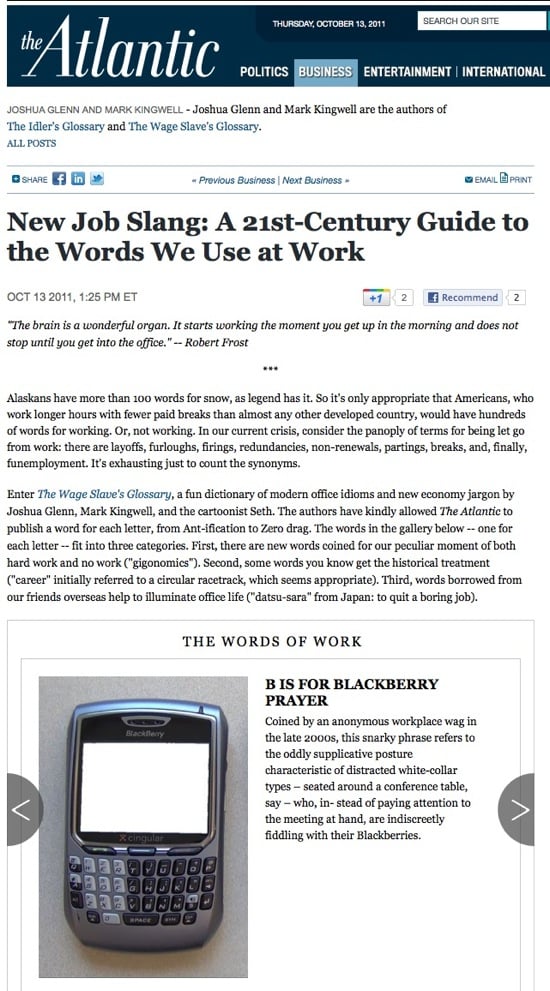
Thanks, Boing Boing, for running a preview of The Wage Slave’s Glossary!
In the comments section, Boing Boing reader “millie fink” takes issue with the phrase wage slave — “Do they also call the places they work ‘concentration camps’? And their bosses ‘Nazis’?.” I might have posted a response, noting that in the WSG we offer historical context for why that term was used by the Lowell Mill Girls, and we note that the term was considered offensive at the time. For example:
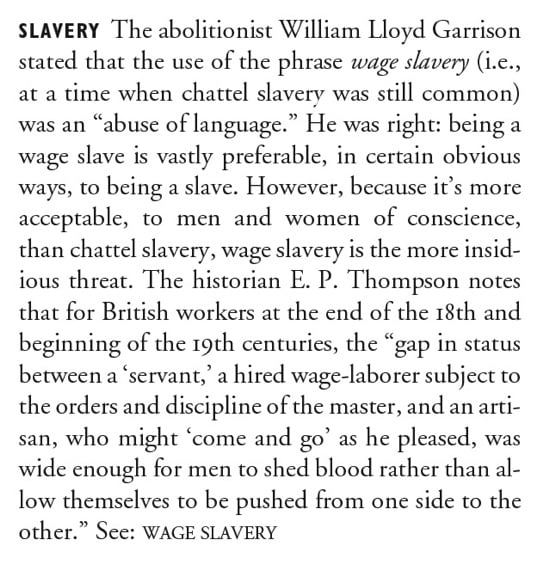
Also:
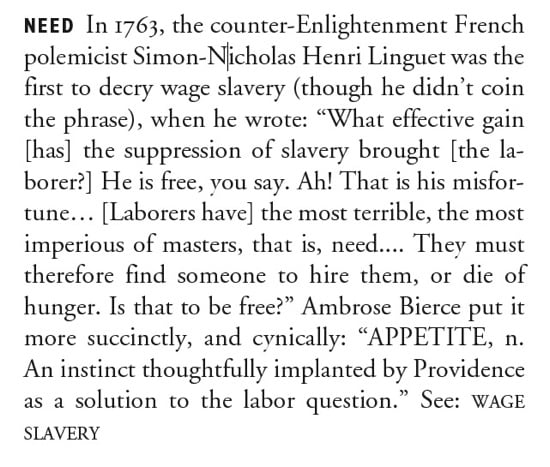
However! Boing Boing users “woid” and “The Chemist” beat me to it, with terrific responses. I love both the question and the answers; Boing Boing readers are the best.
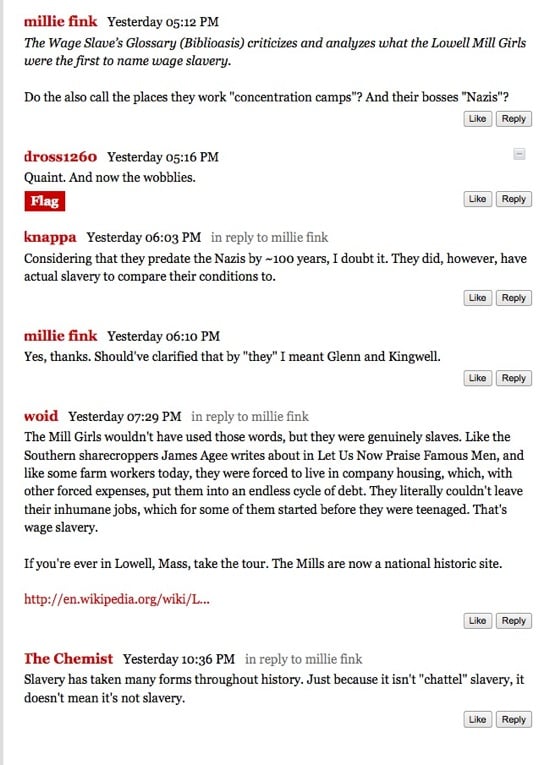
Thanks, Design Observer, for tweeting about the Wage Slave’s Glossary to your 395,000 followers!
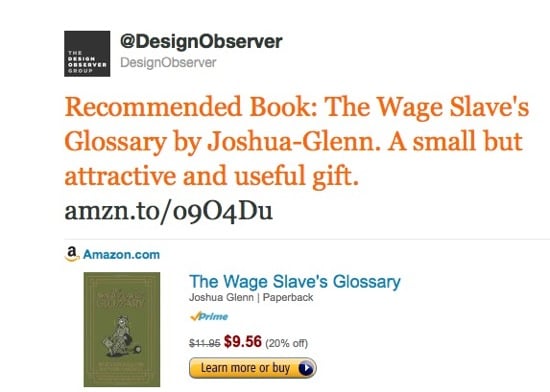
ALSO SEE: Rushkoff vs. the 1% (1) | Tactical Utopia | Feral Dissent | Don’t Mourn, Organize | Occupying Our Gardens | Grand Theft Politics | The Black Iron Prison | News about the Wage Slave’s Glossary
